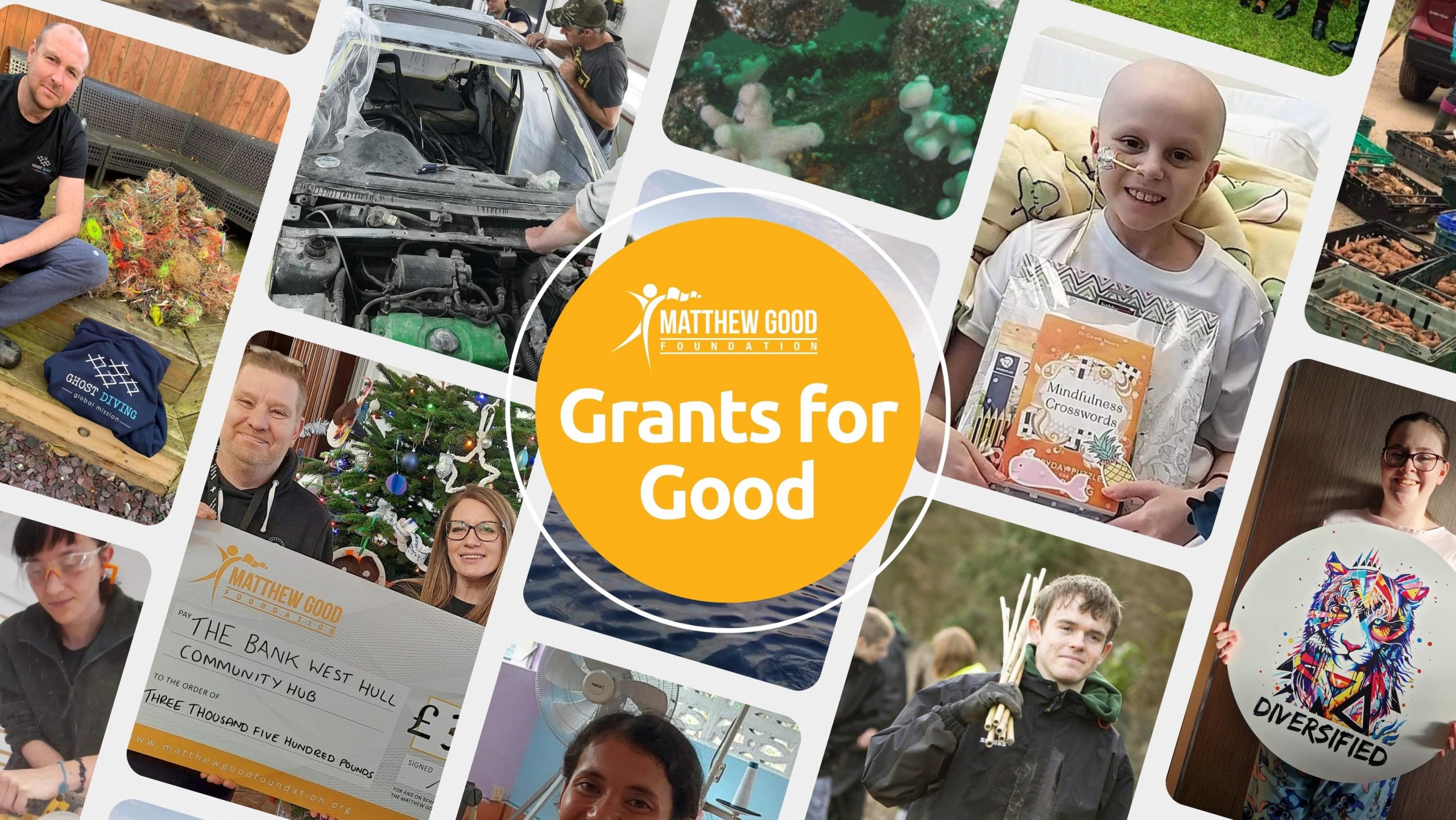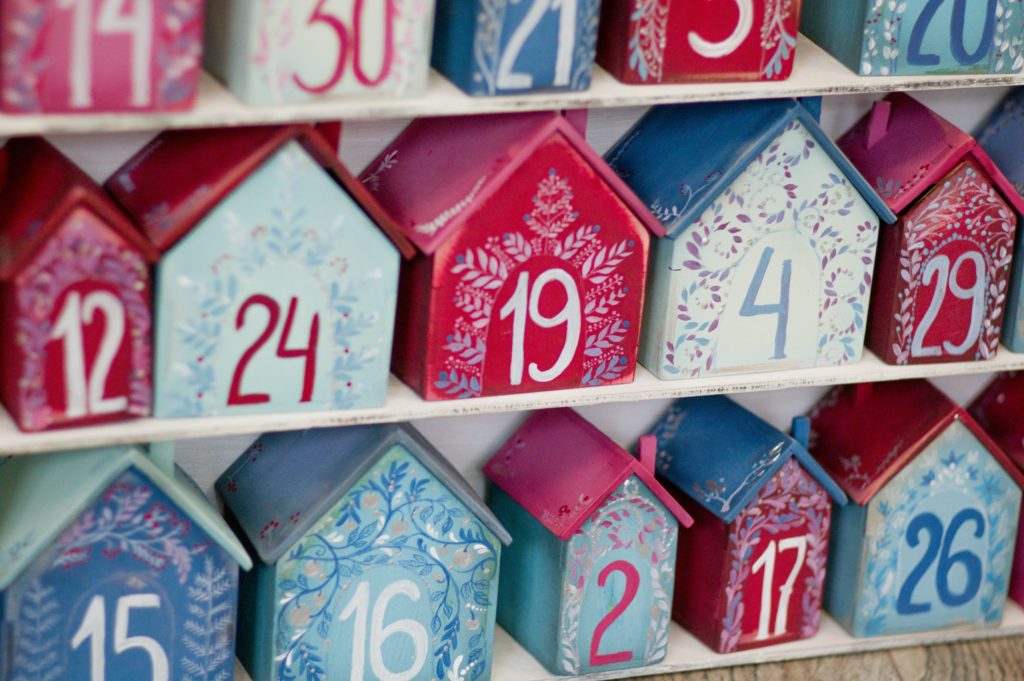Hull, UK: The Matthew Good Foundation has increased the amount it will award through its established Grants for Good programme from £10,000 a quarter to £15,000. All shortlisted charities will receive higher amounts, and the award for the winning recipient each quarter will go up from £3,500 to £5000.
The Matthew Good Foundation is a charitable foundation, funded by the John Good Group. Their mission is to amplify small or local charitable causes, whose work is often unseen and underfunded, yet delivers high value social impact. They do this through a wide range of grant making processes, including grassroots project funding and an employee giving programme for the John Good Group. The Grants for Good fund launched in January 2021 and was the first initiative from the Foundation that invited organisations to apply to them for funding.
Initially, the programme awarded £10,000 a quarter to five causes, shortlisted by a panel at the Foundation. Foundation members – who are all employees of the John Good Group – then voted for their favourite to decide who got the largest share. The winner of the vote received £3,500, second place £2,500, third place £2,000 and fourth and fifth place £1,000. This process would be completed every quarter, meaning that annually, £40,000 was awarded between twenty different causes.
For 2023, the Foundation has increased its annual Grants for Good fund by 50% to £60,000, with £15,000 awarded each quarter to five successful applicants. The winner of the members vote will now receive £5,000, second place £3,500, third place £2,500 and fourth and fifth place £2,000 each.
Previous charities with successful applications include R;pple Suicide Prevention – a charity developing technology to intercept searches for potentially harmful online content, The Bank – a new community hub in West Hull, and Clean Planet – a team of trained divers using their skills to remove ghost gear from their local coastline.
The first organisation to be shortlisted and win the vote was Harry’s Hat, a charity founded by the family and friends of Harry, a baby diagnosed with hydrocephalus (water on the brain), with the aims of raising awareness, offering support to affected families, and funding research to improve outcomes. Caroline Coates – co-founder and newly appointed CEO of the charity reflects on the impact of winning the award, “From my personal perspective launching the charity meant sharing our own personal and difficult story, after-all Harry is my son. We wanted to be associated with a funder who genuinely cares about the causes it supports and took the time to get to know them, so the programme was a perfect match! As a newly formed charity, it was so encouraging to know that people believed in our cause and wanted to help. The support helped us launch our first book ‘Hydrocephalus What I wish I’d known,’ given for free to the parents and carers across the UK. So far, 475 families have benefitted directly as well as 20 neurosurgery units, 34 health visiting teams and numerous front-line workers. In the short time since gaining the award we have supported over 350 families, secured grants to enable us to employ skilled staff to deliver support, funded front-line workers to learn more about the condition, been shortlisted for prestigious national awards and media coverage, and trebled our income.”
Highlighting the reason for the recent award increase, Michelle Taft – Executive Director of the Foundation said, “Those shortlisted for Grants for Good are often extremely innovative, with real potential to grow their impact on society, yet small charities often struggle to secure funding, particularly funding that is unrestricted. Having seen the impact Grants for Good has had on its beneficiaries over the last two years, we hope this increase in funding available will further help both small and new not-for-profit organisations to thrive.”
Adam Walsh, CEO of the John Good Group commented, “Supporting the Matthew Good Foundation is an essential part of our people and social responsibility strategy at the John Good Group. We believe in giving back to our communities and helping small, local charities that may not receive the attention or funding they deserve. Our employees are at the heart of this initiative, as they have the opportunity to decide where the donations go and make a real impact on the causes they care about. We are proud to be associated with the Foundation and its mission to amplify the voices of small charities and organisations that can make a significant difference with a small grant.”
The Grants for Good fund is designed to be deliberately easy for very small charities or new community interest groups to apply for, with simple guidelines and a minimum amount of information needed to get started. Applicants do not necessarily need to be a registered charity, they could also be a local community group, voluntary group or social enterprise. They must have a positive impact on people or the environment, and their annual income must be below £50,000. Shortlisting is performed each quarter, but applications are open all year round, so those looking to apply can do so whenever they are ready. Full details of the programme and an online application form can be found at www.matthewgoodfoundation.org/grantsforgood.
Media Enquiries
Jennifer Murden
Phone: 07444 479192
Email: jen@matthewgoodfoundation.org
Available Monday – Friday, 9.00am – 2.30pm
About the Matthew Good Foundation
The Matthew Good Foundation is a charitable foundation, funded by the John Good Group. It was formed following the unexpected passing of family member and Director, Matthew Good on June 26th, 2011, whilst running for charity in the Humber Half Marathon. Through the Foundation, John Good Group employees can support charities and good causes they care about. The Foundation also supports innovative small charities with funding and resources to help them achieve their potential.
About the John Good Group
The John Good Group is a sixth-generation family business founded on a clear and community-focused philosophy, which is to create and nurture businesses that are a force for good. Winners of the Yorkshire & Humberside Family Awards 2022 for Family Business of the Year and Best Social Impact and founded on family values; they put their people, planet, and communities at the heart of everything they do. The Group comprises five divisions focusing on Travel, Marine, Warehousing and Logistics, Property, and Renewables. Each of these divisions has its own ambitious strategy for continuous growth, all while uniting under a shared vision for the future.
Social Media Channels
Matthew Good Foundation
https://www.linkedin.com/company/matthew-good-foundation
https://twitter.com/MatthewGoodFoun
https://www.facebook.com/MatthewGoodFoundation
https://www.instagram.com/matthewgoodfoundation
https://www.youtube.com/@matthewgoodfoundation2122
John Good Group
https://www.linkedin.com/company/john-good-group/
https://twitter.com/johngoodgroup
https://www.facebook.com/johngoodgroup
Websites
www.matthewgoodfoundation.org











